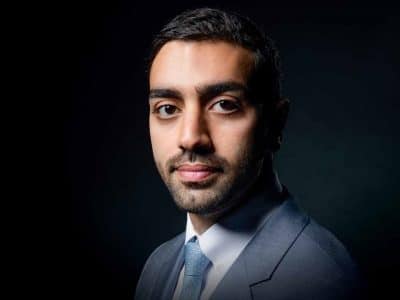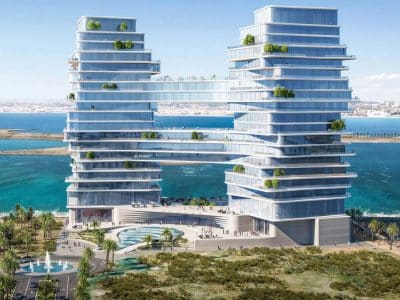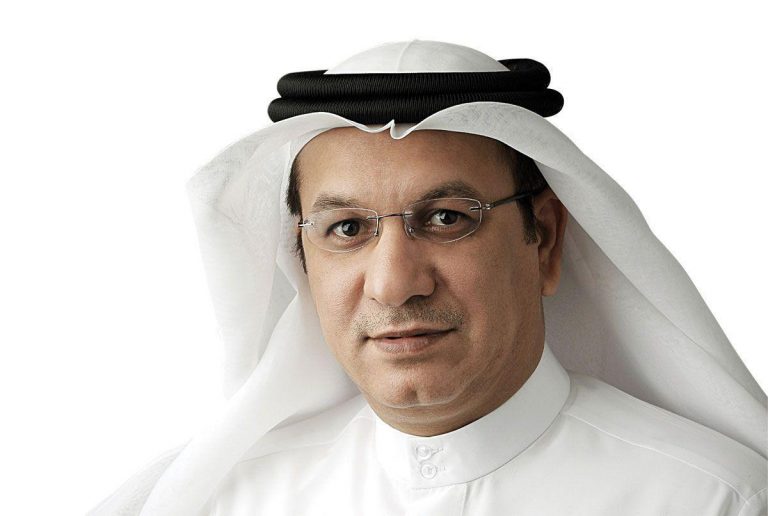If one thing has become clear recently, it is that the Dubai real estate market’s love affair with luxury and the grandiose is being somewhat tempered by a realisation that to maintain its enormous growth rate, some simplicity will be required.
That’s not because demand for the best money can buy is waning — far from it. But the elephant in the room — the demand for low- and middle-end accommodation — is finally being heard.
And the call is being received loud and clear by Dubai developer Deyaar, which, having announced its debut into the hospitality market six months ago, has launched not one, not two, but four hotels in almost as many months.
But there will be a difference — and that might be why you may not yet have heard of the projects.
“We’re not going to develop luxurious hotels or hotels on the beach,” CEO Saeed Al Qatami tells Arabian Business from his office on the seventh floor of an Al Barsha building that has seen better days.
“It’s becoming more and more expensive to come [to Dubai], so by offering more rooms and different rooms [such as] serviced apartments, going into the hotel business [makeS sense].
“Four-star and three-star hotels are becoming a very good product because we have a lot of people coming, whether from the GCC, the subcontinent, even the Middle East region, who want to come and visit Dubai, the brand Dubai, but they can’t afford to pay for a room for AED1,000-2,000 ($272-545), they would like to see the AED300, the AED250, so it becomes more affordable for them to come here.”
Hotel revenue per available room (RevPAR) in the emirate has almost trebled since 2009, to above $300, according to analysts STR Global, while accommodation below five stars is lacking.
With the government announcing its intention to double the number of tourists from 10 million in 2013 to 20 million in 2020, Al Qatami says the goal can only be achieved if the hospitality market diversifies.
Article continued on next page…
“Otherwise if you say, ‘no I want only the top Russian people to come here, I want the top Saudi people to come here’, yes, you’re going to attract them, you have the lifestyle, you have the infrastructure, but it’s really going to be very hard expanding unless you go and tap the other markets where you attract the families… at lower rates.
“But we’ll try to maintain the Dubai lifestyle at the same time.”
The developer also is planning to launch its own hospitality management firm by the end of the year, which Al Qatami says will operate all Deyaar hotels, as well as others.
Deyaar announced its first hospitality development in March. The Atria includes two towers, one each dedicated to hotel rooms and residential apartments, in Business Bay. It won’t be as low key as Al Qatami suggests, with renowned international interior designers Yoo Studio, founded by John Hitchcox and Philippe Starck, on board, but he is sticking to his mantra that it will be more affordable than neighbouring JW Marriot Marquis and the Oberoi. The project has already sold out.
One of the three towers in The Montrose, in Al Barsha, will accommodate a dry hotel. The entire project is already 80 percent sold, according to Al Qatami.
Deyaar has also announced two hotels at its new Midtown master development near Jebel Ali, and Al Qatami says hospitality will be a feature of the company’s yet-to-be-detailed, 70,000 sq ft development at Dubai Maritime City.
“Over the period of the last 24 months we’ve been able to understand what exactly the customer needs, what sort of product [they want], from quality, layout [and] space. I think we now have the expertise in this; that’s why we’ve been very successful in selling 100 percent of The Atria and 80 percent of the Montrose, our recent projects,” Al Qatami says.
The former bank manager says he was lured to take Deyaar into the hospitality market by the government’s movements to rapidly increase tourism. The emirate will host the World Expo in 2020 and a year ago launched commercial passenger flights at a second airport, Al Maktoum International, both of which are within 10 minutes of Deyaar’s Midtown.
“The government is taking this initiative, it’s not like they’re just coming from the sky — no, the government is doing it, so the private sector has to be involved in developing more and more hotels,” Al Qatami says.
Article continued on next page…
He admits it is difficult to predict how the Dubai market — which plummeted 60 percent in 2009 — will perform leading up to the 2020 goals, or thereafter. But it is a risk he is willing to take.
“It’s very impossible for people to guess that. We need to look at it in short terms,” he says. “That’s all that we can read because there are a lot of things that you have to consider, [such as] what is the economic growth in Dubai at that time … I don’t think it would be fair to say ‘this is how it will be’, guessing.”
He expects the Dubai market to stabilise over the next 12 months, after rising at the fastest rate globally during 2013 and adding about 50 percent since 2012.
“I don’t believe that over the next 12 months the market will increase and I hope not, as well. I think we’ll see a steady or flat increase, which is a healthy sign,” he says.
“After this, it depends on the supply into the market and the growth of the population and the growth of the economy at that moment.”
Deyaar’s half-dozen new developments have launched alongside scores from other developers also again ramping up their activities. But Al Qatami is not deterred by the surge in competition.
“Not all announced projects or what you think is supply is going to be in the market; you don’t know who will achieve, who will finish, who will do it,” he says. “I don’t want to quote names, I don’t want to quote projects…
“[But] I doubt that a lot of projects will be delivered in 2015. A lot of those announced projects will take a while and I think you won’t see the supply kick in until 2016.
“But definitely we need these projects to be launched because we cannot afford in Dubai further escalation in the cost of living.”
Article continued on next page…
Deyaar was one of the first Dubai property developers to recover from the financial crisis. It returned to profit as early as the second quarter of 2011, while rivals such as Emaar, the largest listed developer in the UAE, were still reporting downturns above 50 percent.
But the picture was not so pretty when Al Qatami took over in mid-2010.
“It was tough, it was very, very tough,” he recalls. “The company had a lot of issues in terms of the projects, in terms of delivery of those projects, in terms of funding… in terms of cash flow for vendors and creditors. It was a very tough overall financial position because of the impairment and other things we had to take as our punishment [for over-stretching during the property boom].
“But today the company is in a very healthy financial position. Our debt is less than 9 percent of our overall assets. It was over 23 percent.
“The strategy now has become clearer and clearer, the financial position has come stronger and stronger, satisfaction of customers has become better and better, [with] less problems and less issues than we used to face before.
“I think we have done a great achievement and there is an exciting time ahead for both management and shareholders of Deyaar.”
Things may be a lot brighter than a few years ago, but Deyaar’s performance on the Dubai Financial Market has been tumultuous this year. Shooting up 70 percent in the first four months of the year, it halved again in less than three months before partly recovering to be up more than 20 percent so far this year, at the time of going to print.
Al Qatami blames the rollercoaster ride on investors and not the company.
“I believe that on the equity market there’s a lot of speculation that’s happening and speculation always wants to have certain criteria … [and] I don’t think this criteria is applicable in Deyaar,” he says.
Article continued on next page…
“They want to have rumours, the size of the shares also has to be to a certain extent [for portfolio requirements]. For a certain time … [Deyaar] was undervalued, there was a lot of speculation movement and we had a lot of good investors buying, but I don’t think there’s much speculation happening on Deyaar shares [now], which is very good.”
Al Qatami counters that there are “a lot” of serious investors, but there is a “good” number who are focused on “making quick returns”.
“There is no harm in it until these speculators decide to exit the market. Then you will have harm to those shares which are under speculation,” he says.
But having previously held senior managerial positions at Dubai Islamic Bank and Standard Chartered Bank, both public companies, as well as RAKBank, which is part listed on the Abu Dhabi Stock Exchange, Al Qatami is adamant he prefers operating a public company.
“It’s always stronger to manage a company with compliance, corporate governance, clear identified processes, procedures and policies,” he says. “If you have a clear set of procedures and policies and processes, whatever it is, sales, operation, IT, if you have this and you have core overall corporate governance it’s always better, it’s always healthier.
“I think this is what we lacked before the crisis in a lot of companies. Whether it’s private or public, it’s the same, it’s a company; you have to run it. But when it’s public it’s even better for you, the company can manage [if a senior executive leaves] and they have continuity and can have all of their plans done in a proper manner.”
Al Qatami also has changed the company’s direction by selling off assets outside the UAE, including its stake in a joint venture in Turkey and a controversial plot of land in Houston, Texas, which it offloaded in June for an undisclosed sum.
The land was at the centre of a criminal investigation that has seen Deyaar’s former CEO Zack Shahin spend the past six years in jail. Shahin is accused of deceiving the company into paying inflated prices for the land in November 2007 and embezzling $125m in the process. The case became more controversial when he was released on bail after lobbying from the US government, only to flee to Yemen, where he was caught and returned to the UAE. In May last year, he was sentenced to 15 years in jail after being found guilty of taking AED20m in bribes during his tenure at the developer between 2004 and 2007.
The Lebanese American, 49, was later acquitted on appeal and is being held in jail while awaiting a re-trial.
Article continued on next page…
Al Qatami says the company’s decision to sell the Texas land was purely based on financials.
“There was a different strategy in Deyaar in 2006-07, when Deyaar decided to go international. We’ve been able to review this strategy over the past few years; we’ve been reviewing carefully from market perspective, from what business is happening in those markets, how feasible [developing there is] what we can do in those investments… whether we can [afford to] invest in this asset, the legal aspect, tax…” Al Qatami says.
“For example, the US is very far for us, especially when you have a land bank and you want to develop it. It’s very difficult for Deyaar from this distance to keep an eye on it, so we thought the best thing is to exit that market.
“At the same time we looked into what market we want to diversify [into]. We think that within the GCC here is the right business model for us. So we’re looking at markets like Saudi Arabia, Muscat, maybe outside the region here in the Middle East as well; we’ll see what opportunities we can identify.”
The company already has put out the feelers for potential projects in the region, with a few opportunities identified.
“We are looking. I am making a few phone calls. There have been a few discussions,” Al Qatami says.
Deyaar already owns a 10 percent stake in Al Zorah, a mega project on the coast of Ajman being developed by Solidere International, which has been behind the urban regeneration of downtown Beirut.
It was revealed during the recent Cityscape event in Dubai that it will include four marinas, two hotels, a golf course, villas and a wellness centre. Al Qatami says the first phase is expected to launch mid-2015.
Deyaar also co-owns Central Park in Dubai International Financial Centre, a 1.6 million sq ft residential and commercial development that will be connected to the landmark building The Gate. The government’s Dubai Holding owns the other half.
“What we lack in Deyaar today is some villas or resort projects. If we identify something outside of Dubai that will add value to the community — that will add to the overall strategy of that emirate — we will be willing to work on it,” Al Qatami says.
But, of course, he is not willing to predict what that may be.








